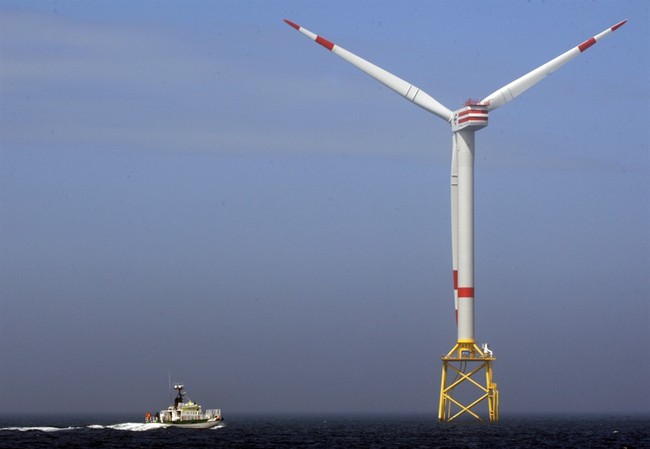
This was interesting this morning, out of Germany – that the country could be in deep doodoo with an industrial production slump that surprised everyone, and previous months’ data was revised down to boot.
German industrial production suffered its biggest drop in almost a year, raising the prospect that Europe’s largest economy shrank last quarter by even more than initially estimated.
Output declined 1.9% in June from the previous month, driven by machinery and equipment, pharmaceuticals and food — far more than any economist predicted. The May reading was revised to a slight contraction, and the overall production slump in the second quarter now amounts to 1%, Destatis said on Thursday.
While hoping to tread water for the remainder of the year, it’s a gloomy morning.
…“This is a significant setback and it does point to a risk of a downward revision of the second-quarter numbers,” he said. The drop will offset higher production early in the year to frontload before US tariffs, Schmieding observed, saying that “this is the payback.”
The report will add to signs of distress sent by Germany’s export-oriented businesses now that levies threatened by US President Donald Trump have become a reality.
There are some cynics already pouncing on the effect of years of dogged devotion to the climate cult.
We are watching our green economic miracle unfold, in real time!
— Alex (@r3dn4x314) August 8, 2025
And, gosh – I wonder why?
It couldn’t possibly be that all the predictions of the assured self-imposed destruction of their energy security and standard of living were coming to pass almost every single day since Russia invaded Ukraine, and smug cultists flipped the switches on the last nuclear plant to ‘off’ anyway.
Nuclear plants that ran reliably for decades, without massive government subsidies and bribes, and provided cheap, on-demand electricity for industry to thrive. They had those.
My, how times have changed. The German government no longer has the budgetary room to sustain the Green Transition after all these years, and the assumption was that, once established, these renewable marvels would eventually stand on their own merits.
Skyrocketing electrical rates and falling industrial production would lead one to believe renewables are never going to be ready for prime-time and starring roles as the main providers of affordable, reliable electrical generation.
CHART OF THE DAY: Germany’s energy-intensive industrial production revisits the lows (last data point is June, which came out today). Energy-intensive industrial output is now >20% below what it was a decade ago. For Germany, the European energy crisis isn’t over. pic.twitter.com/JfsnWiERNL
— Javier Blas (@JavierBlas) August 7, 2025
Considering that there still is an overwhelming need for additional renewable sources to come online to replace what the government prematurely shuttered in traditional generation capacity, well, by Jurgen! I don’t believe the renewable industry wants any part of the responsibility without subsidies.
Wind power companies in Germany were asked to supply electricity without subsidies, but not a single one was prepared to do so. The promises of ‘cheap’ wind power have utterly failed, says Ben Pile. https://t.co/LCpVHFLbL2
— Toby Young (@toadmeister) August 7, 2025
The perpetual leeches are demanding the lucre keep flowing.
A major German auction for wind power installation in the North Sea has closed without a single company entering a bid. No investors submitted offers to build wind turbines in an area totalling 182 square kilometres off the coast of Frisia by the end of the bid deadline on 1 August.
The failed auction has led lobbying organisations to demand an increase in subsidies and public guarantees to make wind power investments more attractive for investors.
These countries have cut their own throats thanks to closing nuclear plants and shutting off natural gas production for those options, and are in a near panic state as the renewable lobby refuses to cut the long overdue subsidy cord.
Yes, costs have grown for offshore wind, but look what has happened to the German and European utility consumer in general, thanks to paying the freight. They are being eaten alive by energy prices.
…The failed auction is the latest setback in Europe for offshore wind, which has seen its growth prospects slashed by precipitously rising costs in recent years. As developers prioritize profitability over growth, governments increasingly need to provide subsidies to stimulate investment.
That’s a reversal from recent years, when offshore wind farm developers in the North Sea were ready to invest without government backing, including in Germany. Two years ago, BP Plc and TotalEnergies SE agreed to pay billions of euros for the right to develop major projects.
But today, BP is pulling back from renewable power as it focuses on the profit-driving fossil fuel business, while Total undertakes a strategic review of its offshore wind business in Germany. An earlier offshore auction in June already saw a drop in bidders.
It’s a similarly grim picture for solar, with dwindling investor appetite for unsubsidized solar parks as falling power prices erode profit margins. These developments pose a risk to the country’s target for expanding renewable energy capacity.
The cost is driving industry off the continent.
OMG – This looks worse than a #stagnation indeed: #German industrial production, chart @JPMorganAM pic.twitter.com/qAwn8zxUfJ
— ACEMAXX ANALYTICS (@acemaxx) August 5, 2025
Paying for renewables is destroying economies.
Highest Real GDP increase in the EU 2019-2025:
🇭🇷 Croatia
🇧🇬 Bulgaria
🇵🇱 PolandLowest increase:
🇩🇪 Germany pic.twitter.com/7r2EFmy0gD
— Visegrád 24 (@visegrad24) August 8, 2025
And it’s time to acknowledge they will never pay for themselves.











